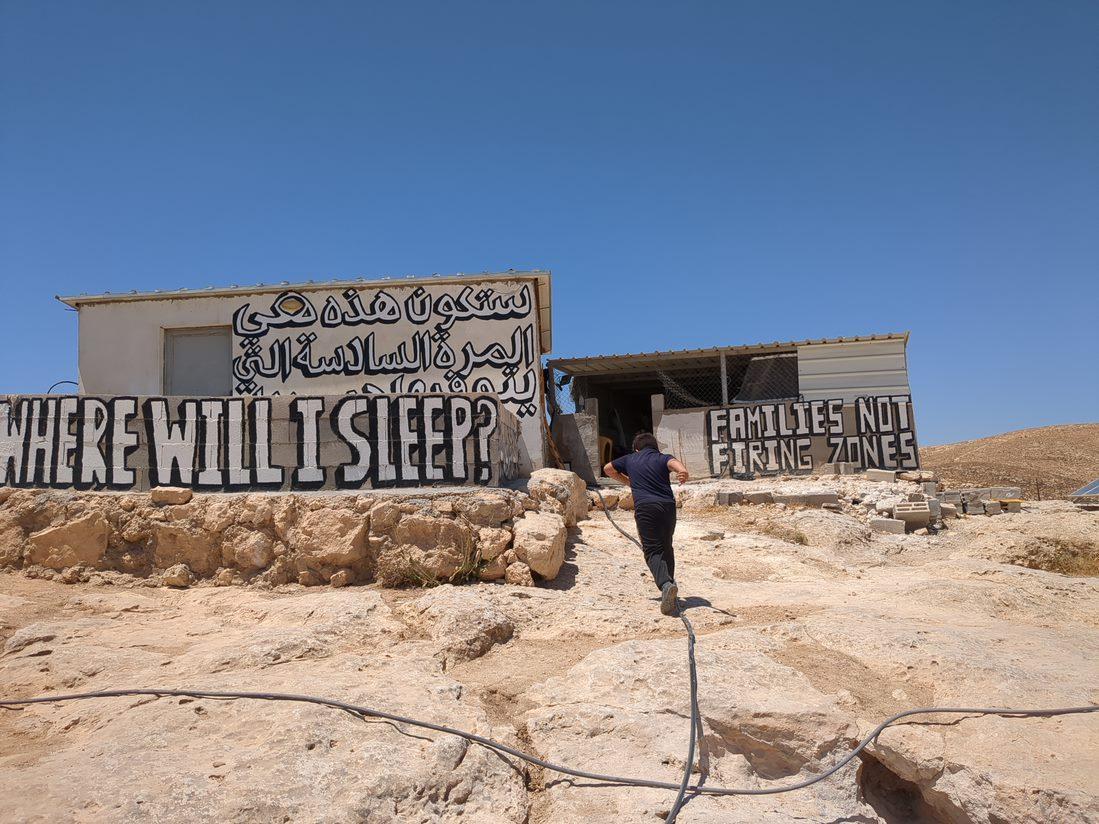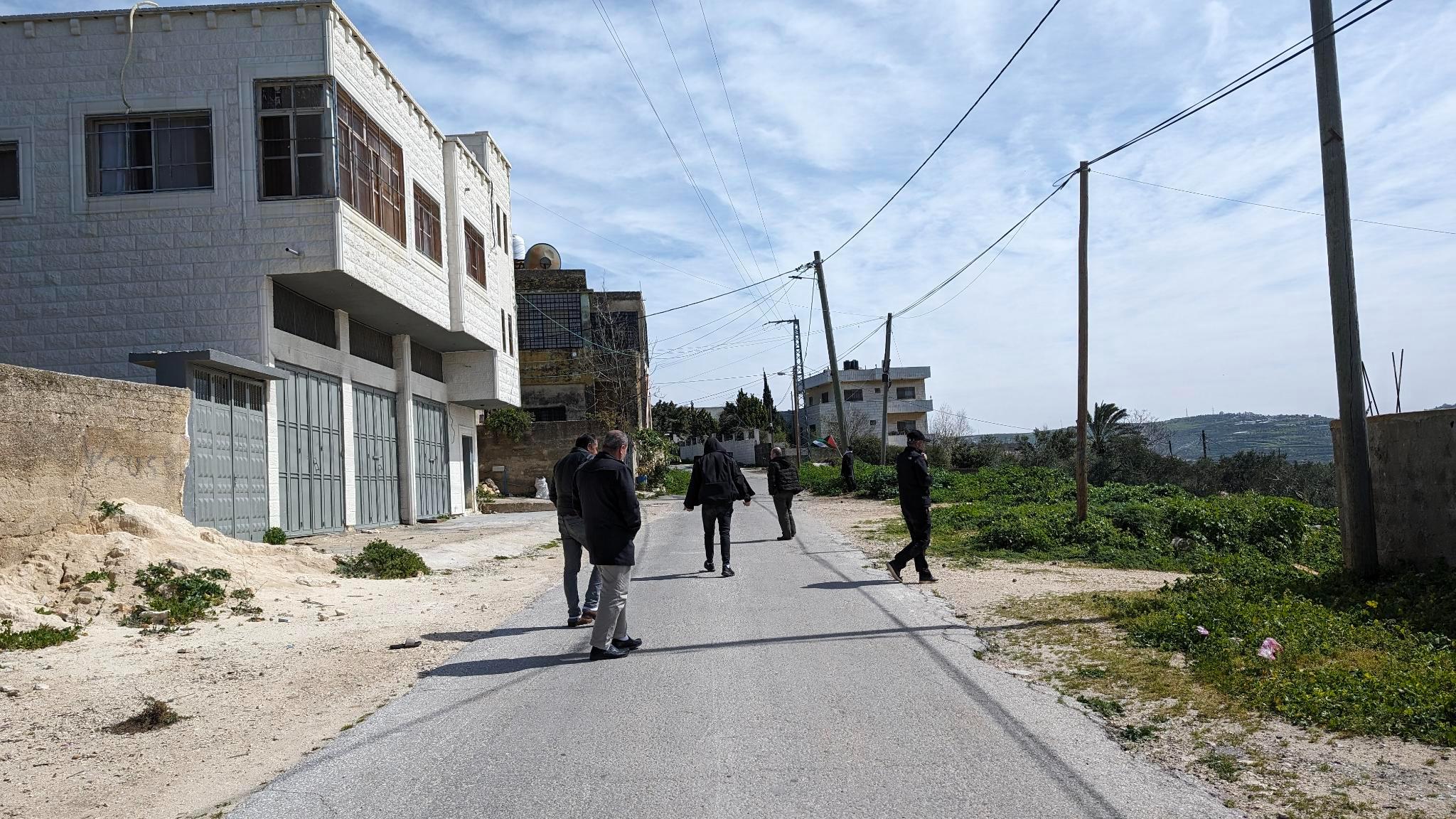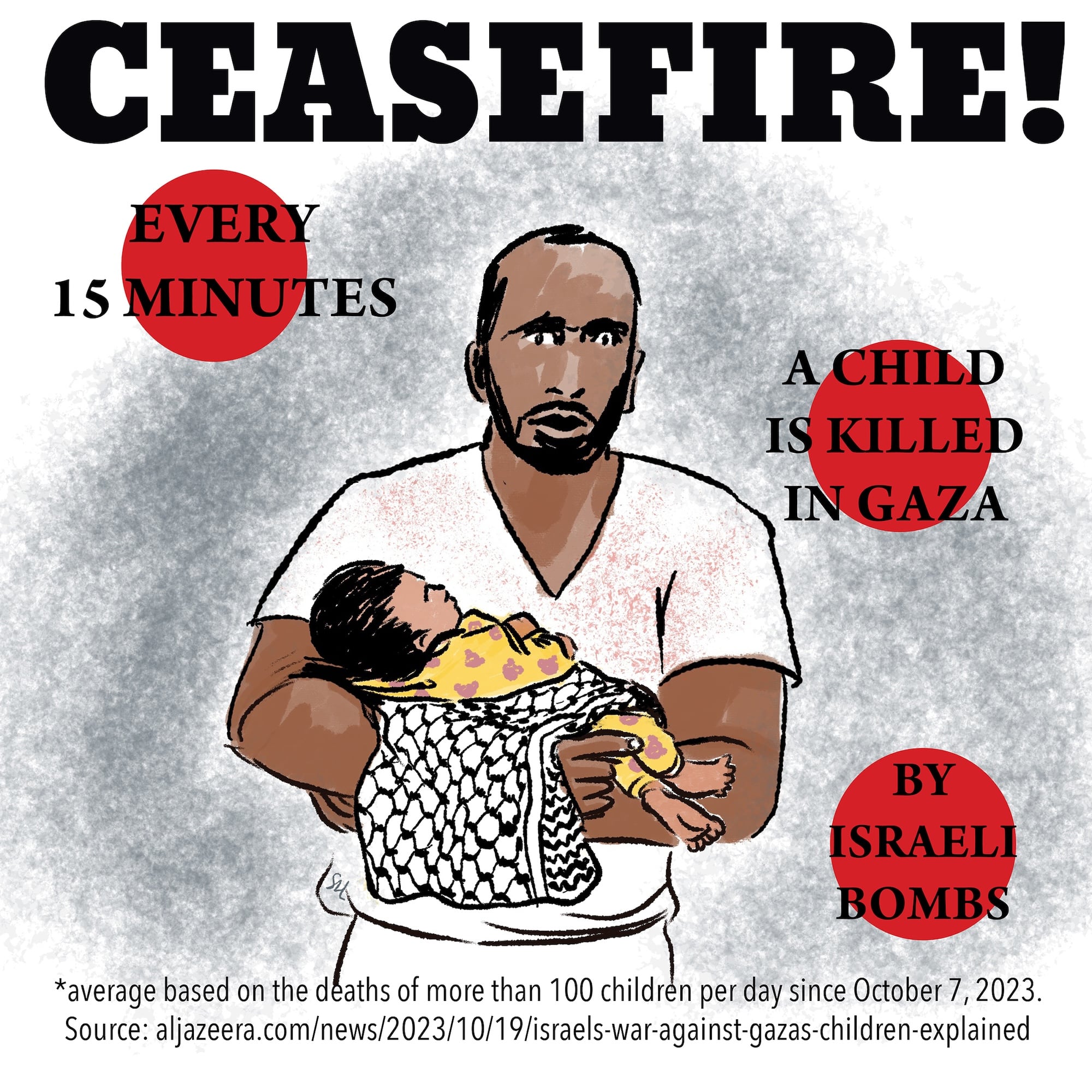Category: Journals
-
Dispatches from Palestine
2024 (rolling) | International Solidarity Movement | Occupied West Bank As the Israeli occupation continues its genocidal war in Gaza and Western governments fail to take decisive action to end their complicity in the massacre, the mass movement around the world in solidarity with Palestine is growing stronger and larger. Students have occupied numerous university…
-
“We Have Suffered Too Much”: Friday Protests Continue in Kafr Qaduum
1 March 2024 | International Solidarity Movement | Kafr Qaduum It is Friday, and the call to prayer is heard in the rural village of Kafr Qaduum, West of Nablus in the northern part of the West Bank. The streets are quiet, empty except some children playing and a few cars heading early to the…
-
Suffer the Children
I am still perpetually on the verge of crying or crying most of the time. Throughout my travels in Palestine, I have learned from the wisdom of children.



